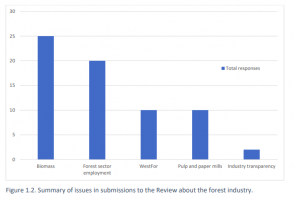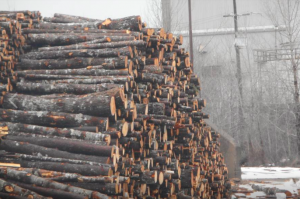The initiative of Extinction Rebellion Nova Scotia to highlight Forest Biomass in the upcoming event is a breath of fresh air
 Extinction Rebellion Nova Scotia, founded in November 2018, lifted off in Nova Scotia on Feb 17, 2019
Extinction Rebellion Nova Scotia, founded in November 2018, lifted off in Nova Scotia on Feb 17, 2019
On the afternoon of Sunday, February 17th, some one hundred and fifty adherents to international climate crisis movement Extinction Rebellion blocked traffic at several major intersections in downtown Halifax. Bearing large banners proclaiming “Climate Crisis” and “Extinction Rebellion”, the crowd waved multi-coloured flags with the group’s iconic empty hourglass symbol, chanted and sang classic songs like Louis Armstrong’s ‘What a Wonderful World’ and Joni Mitchell’s ‘Yellow Taxi Cab’. The group had alerted Halifax Regional Police to their intentions in advance… – NS Advocate
On Monday April 15, 2019, events are planned in Halifax in conjunction with the International Week of Rebellion
Extinction Rebellion Nova Scotia joins conscientious protectors in over 45 countries and in cities across Canada in rebelling against a course set for ecological and societal breakdown.
Two demands will be the focus of this event:
(i) to media to START REPORTING ON THE CLIMATE CRISIS AND HOLD GOVERNMENT TO ACCOUNT
(ii) to Nova Scotia Power to STOP BURNING COAL AND FORESTS FOR ELECTRICITY
Why do I have a feeling that this will not be the last we hear about coal and biomass and climate change in Nova Scotia?
View:
– Extinction Rebellion Nova Scotia (Facebook page)
– Extinction Rebellion United Kingdom, the founding organization
– Extinction Rebellion in Wikipedia for a detailed history of this movement (not yet one year old)
– Time for Nova Scotia Government to come clean on forest bioenergy feedstocks (Post on NSFN, Mar 19, 2019)

Forest Biomass (for bioenergy) was foremost amongst concerns expressed in submissions to the Independent Review but received very little attention in the Review. View EAC Op-ed.
Figure is from the Addendum to the Independent Review
Unfortunately, it is not helpful to view the Report of the Independent Review on Forest Practices in Nova Scotia (the Lahey Report), which said next-to-nothing about Forest Biomass.
Where the Province is headed is indicated under energy.novascotia.ca:
Bioenergy has many forms, including
– biomass, which can include forest biomass, wood processing wastes, agricultural wastes, and energy crops for example
– biogas, which is largely methane can be used in engine generator sets to produce electricity and heat from the digestion of wet organic waste materials.
– biofuels, which are renewable fuels that can replace gasoline, diesel, or home heating fuels.
The Province is currently assessing bioenergy opportunities to ensure any potential sources can be produced sustainably and complement—but do not compete with—existing industries such as forest products and food crops.
We are also assessing opportunities to allow demonstration of pre-commercial processes that a future bio-refinery industry may hold for Nova Scotia.
The initiative of Extinction Rebellion Nova Scotia to highlight Forest Biomass in the upcoming event is a breath of fresh air.


